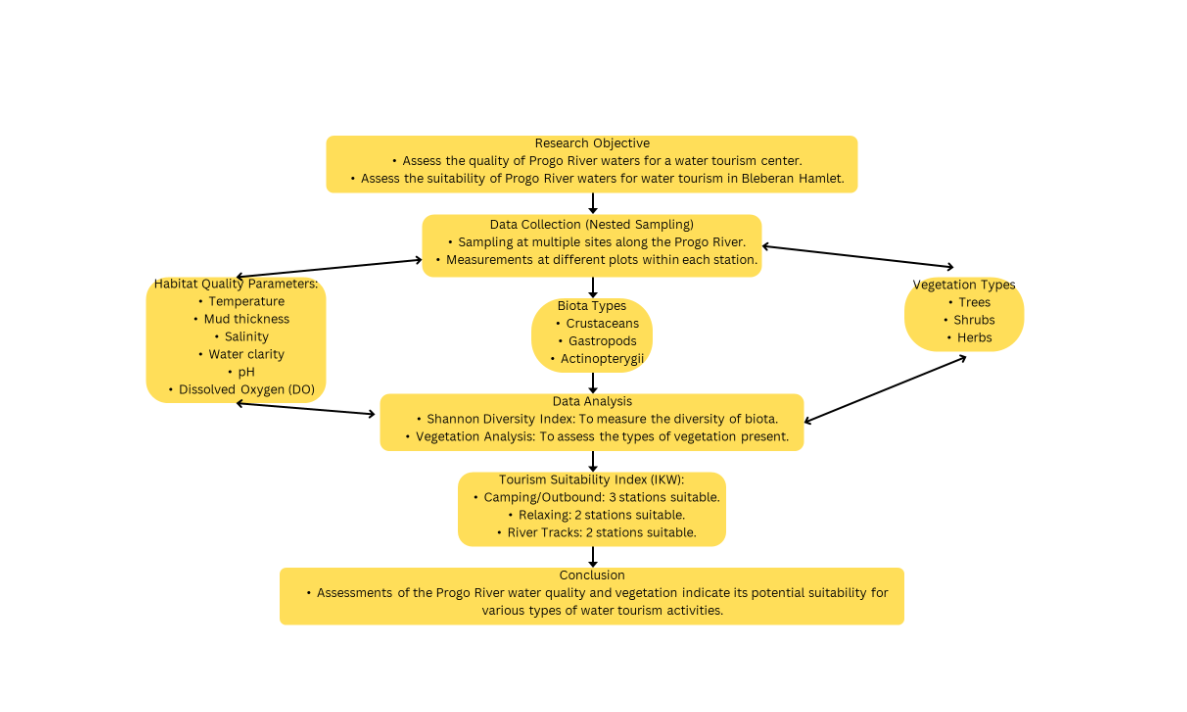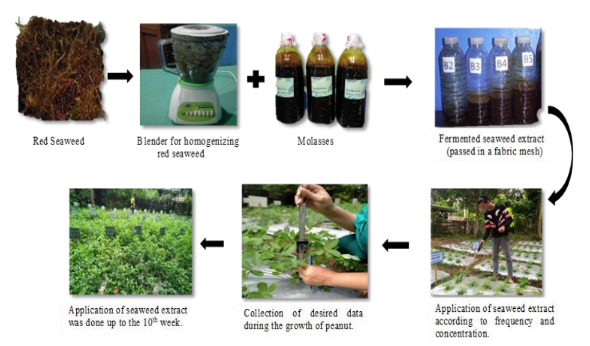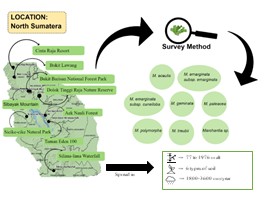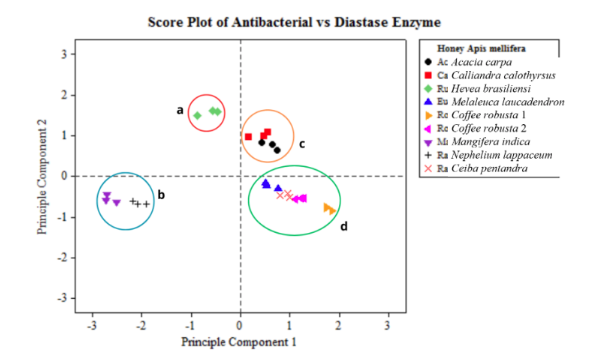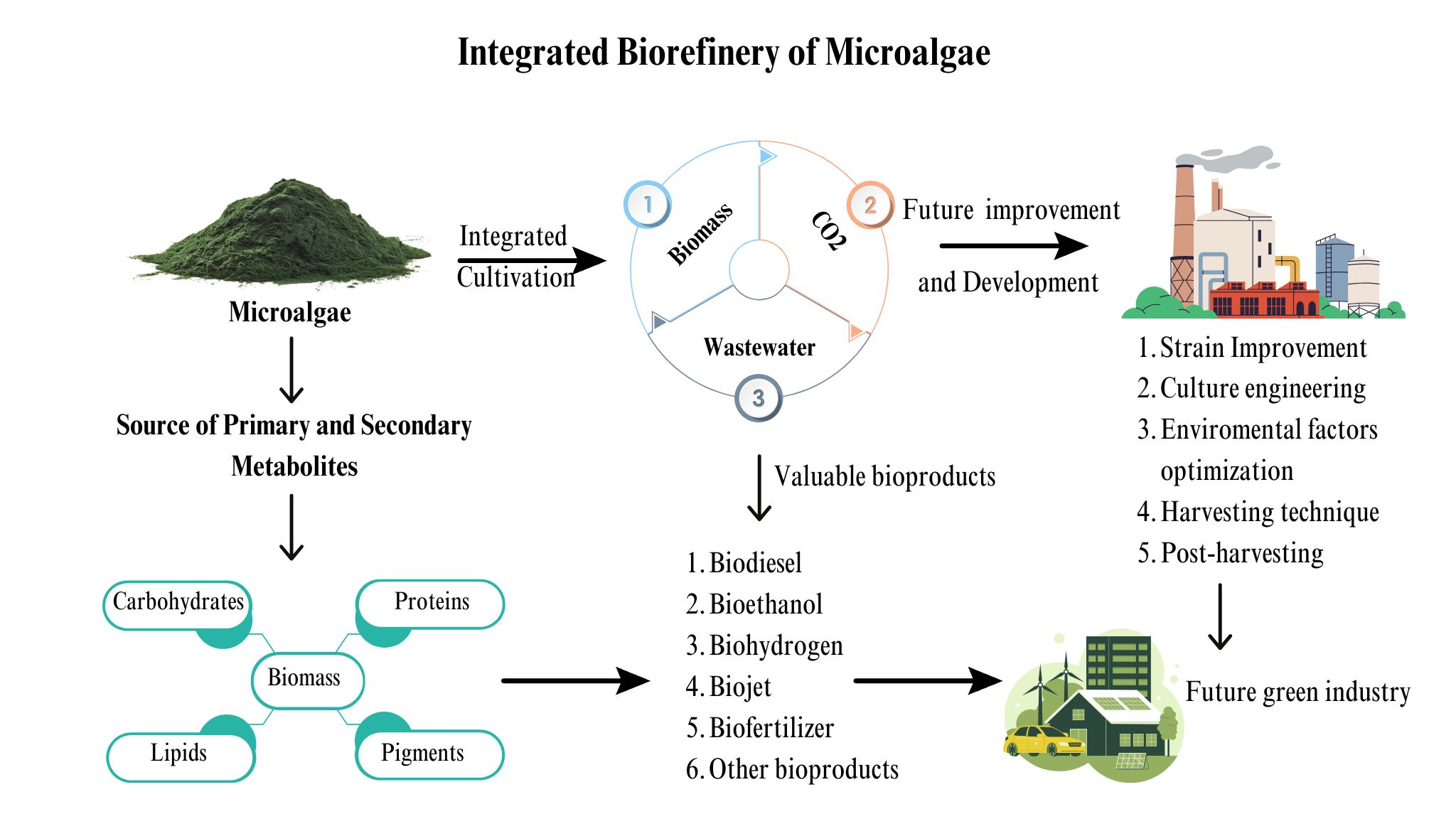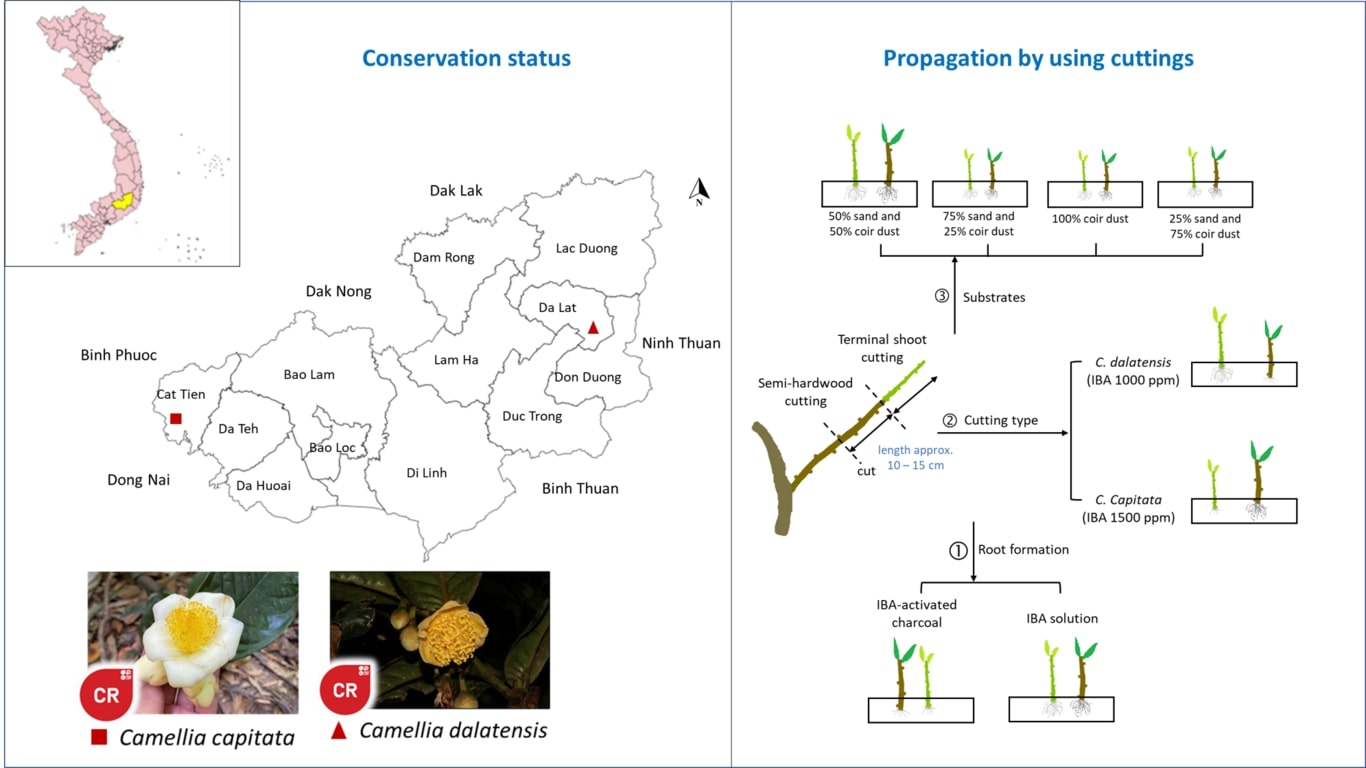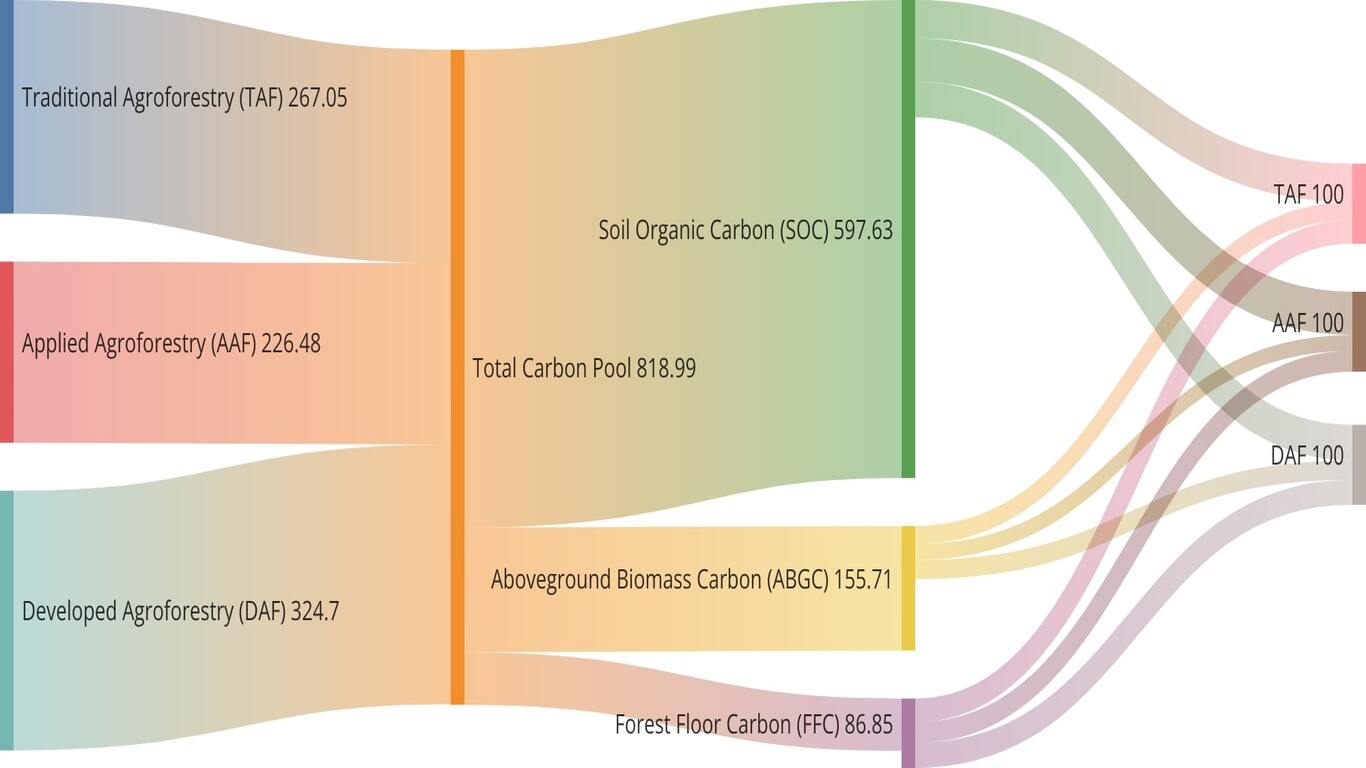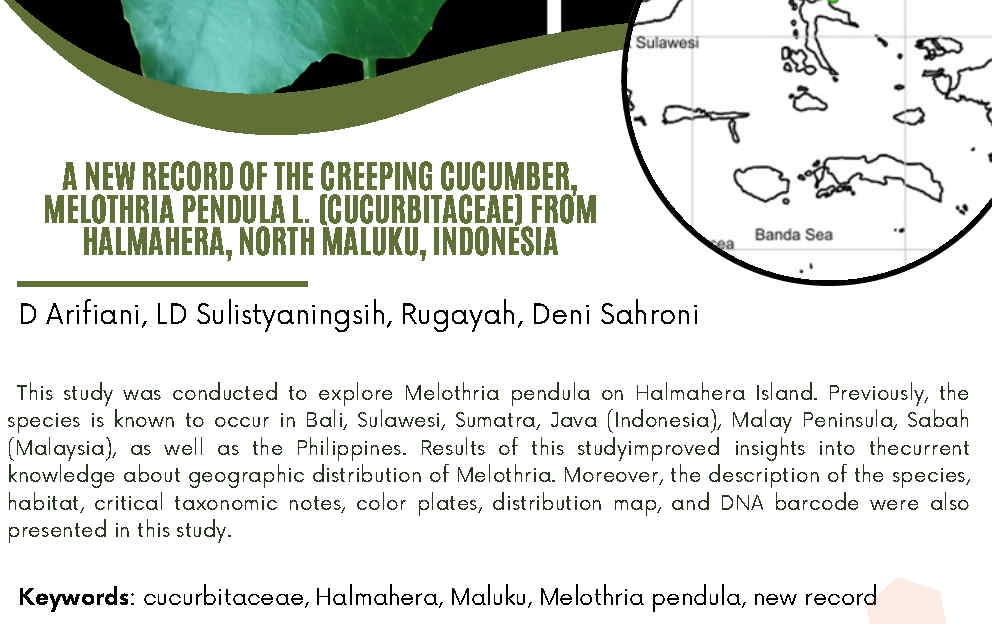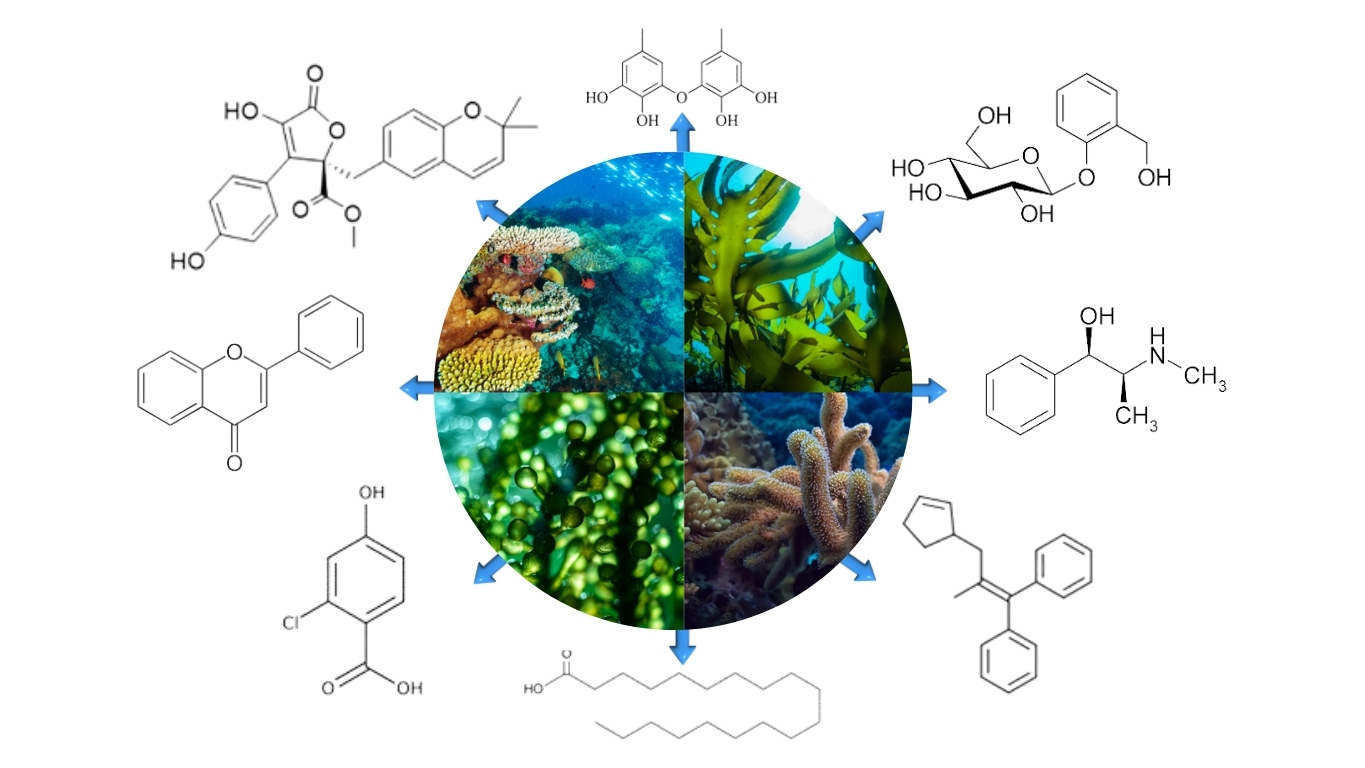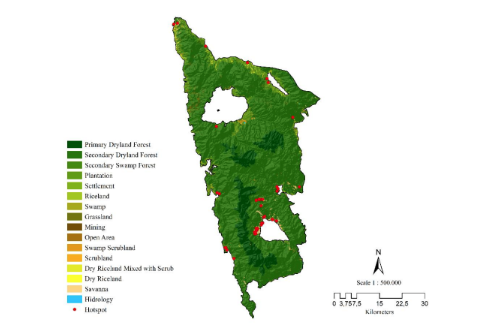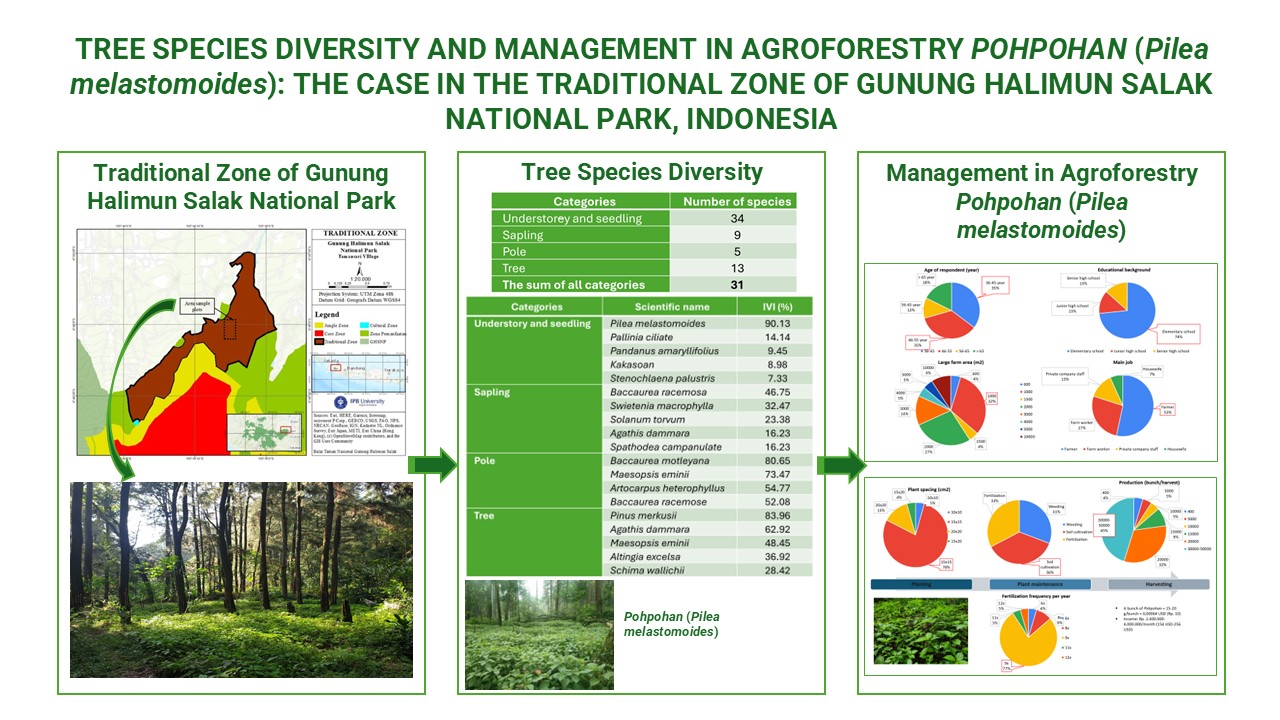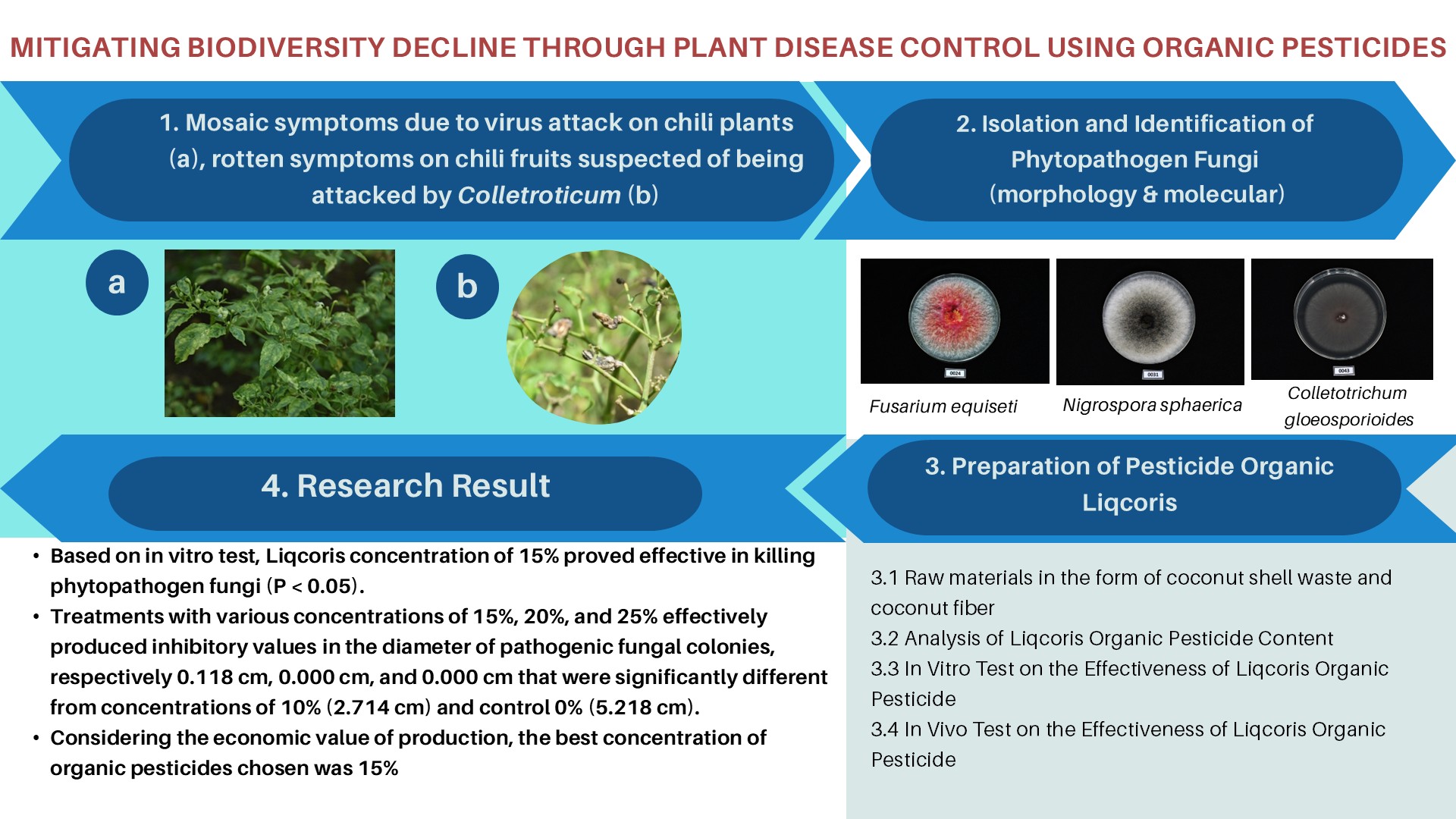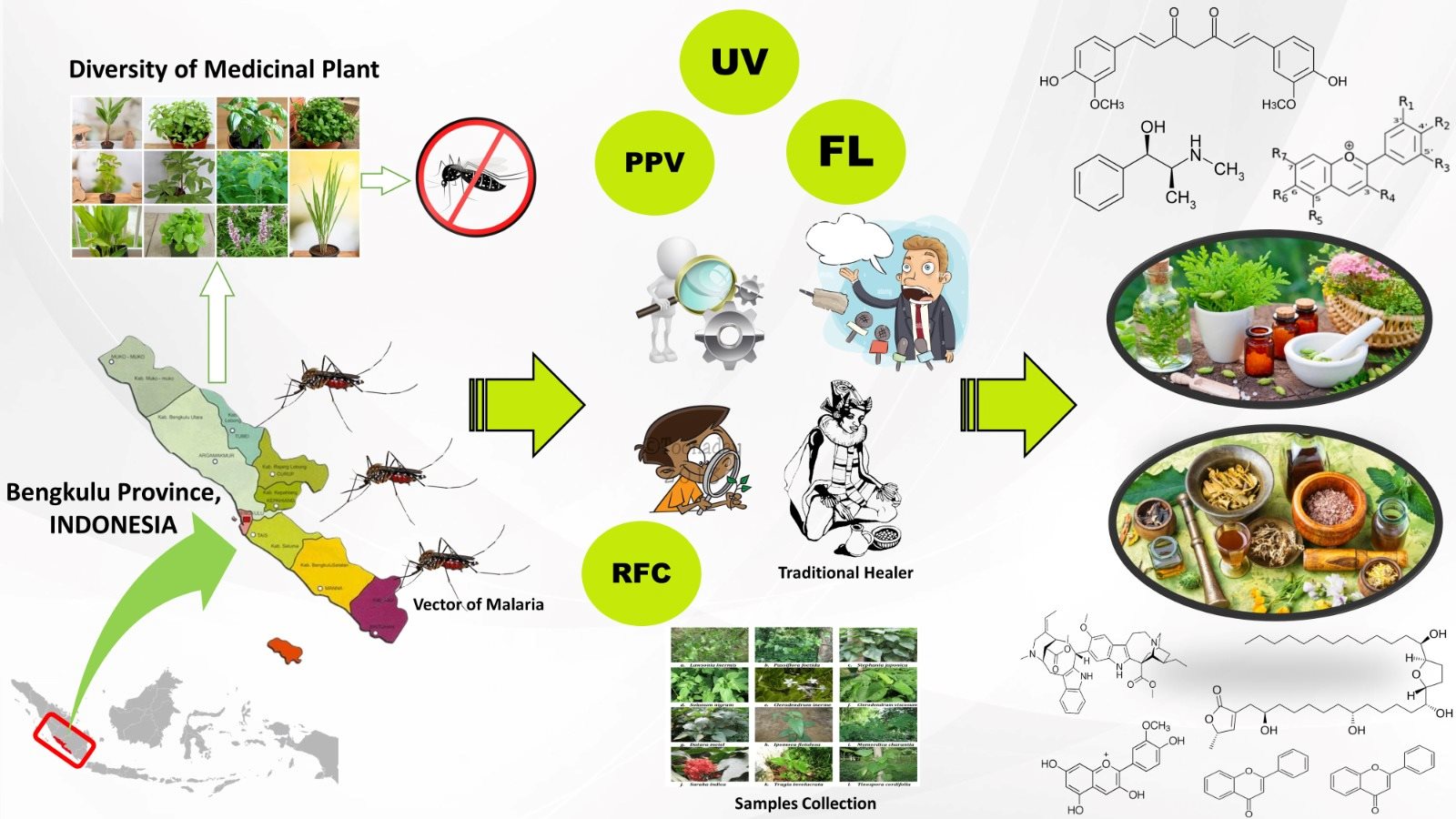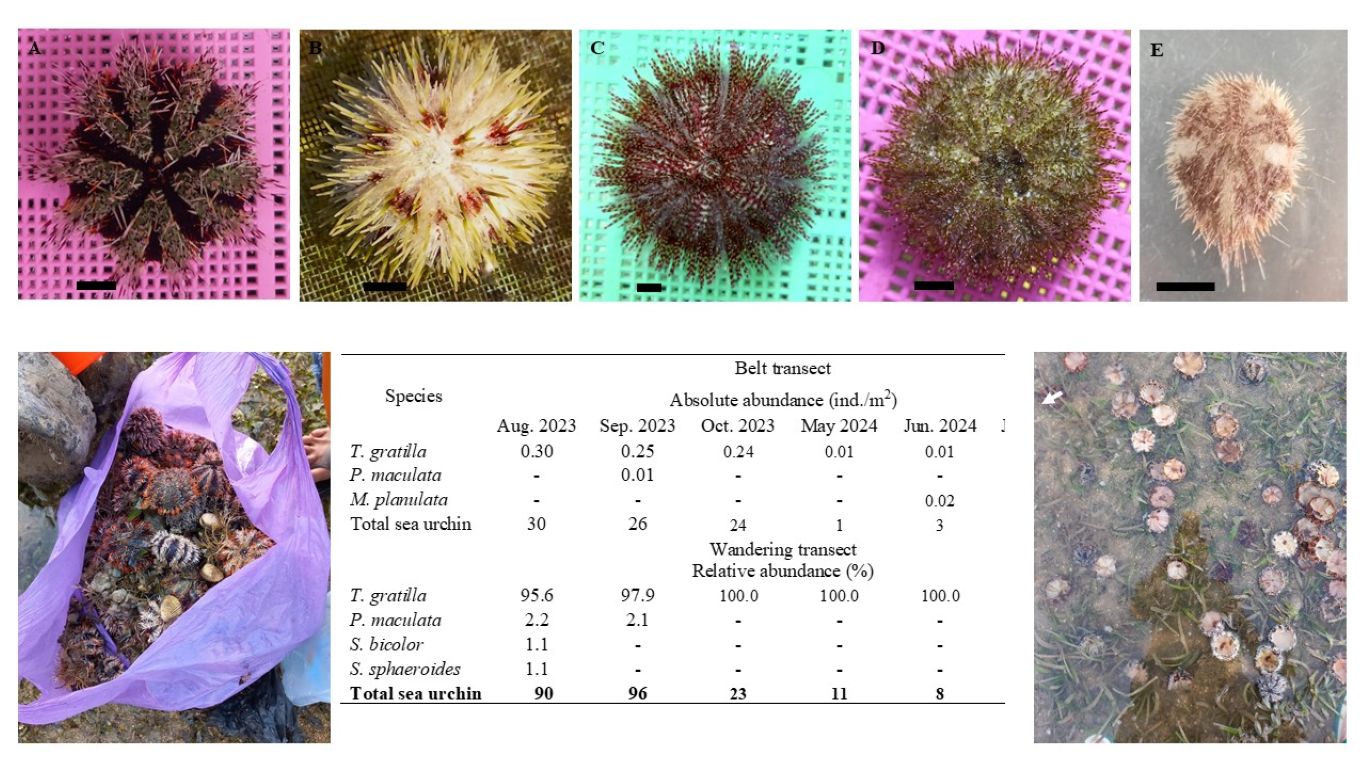Spatial Pattern in Beta Diversity of Echinoidea and Asteroidea Communities from the Coastal Area of Tomia Island, Wakatobi Marine National Park, Southeast Sulawesi, Indonesia
Vol. 22 No. 1 (2015)
Research Paper
January 19, 2015
August 23, 2015
Downloads
Analuddin, K., Nasaruddin, N., Septiana, A., Sarliyana, W. O., Nurlyati, A., Masa, W., & Rahim, S. (2015). Spatial Pattern in Beta Diversity of Echinoidea and Asteroidea Communities from the Coastal Area of Tomia Island, Wakatobi Marine National Park, Southeast Sulawesi, Indonesia. BIOTROPIA, 22(1). https://doi.org/10.11598/btb.2015.22.1.355
Downloads
Download data is not yet available.
Authors who publish with this journal agree with the following terms:
- Authors retain copyright and grant the journal right of first publication, with the work 1 year after publication simultaneously licensed under a Creative Commons attribution-noncommerical-noderivates 4.0 International License that allows others to share, copy and redistribute the work in any medium or format, but only where the use is for non-commercial purposes and an acknowledgement of the work's authorship and initial publication in this journal is mentioned.
- Authors are able to enter into separate, additional contractual arrangements for the non-exclusive distribution of the journal's published version of the work (e.g., post it to an institutional repository or publish it in a book), with an acknowledgement of its initial publication in this journal.
- Authors are permitted and encouraged to post their work online (e.g., in institutional repositories or on their website) prior to and during the submission process, as it can lead to productive exchanges, as well as earlier and greater citation of published work (See The Effect of Open Access).









